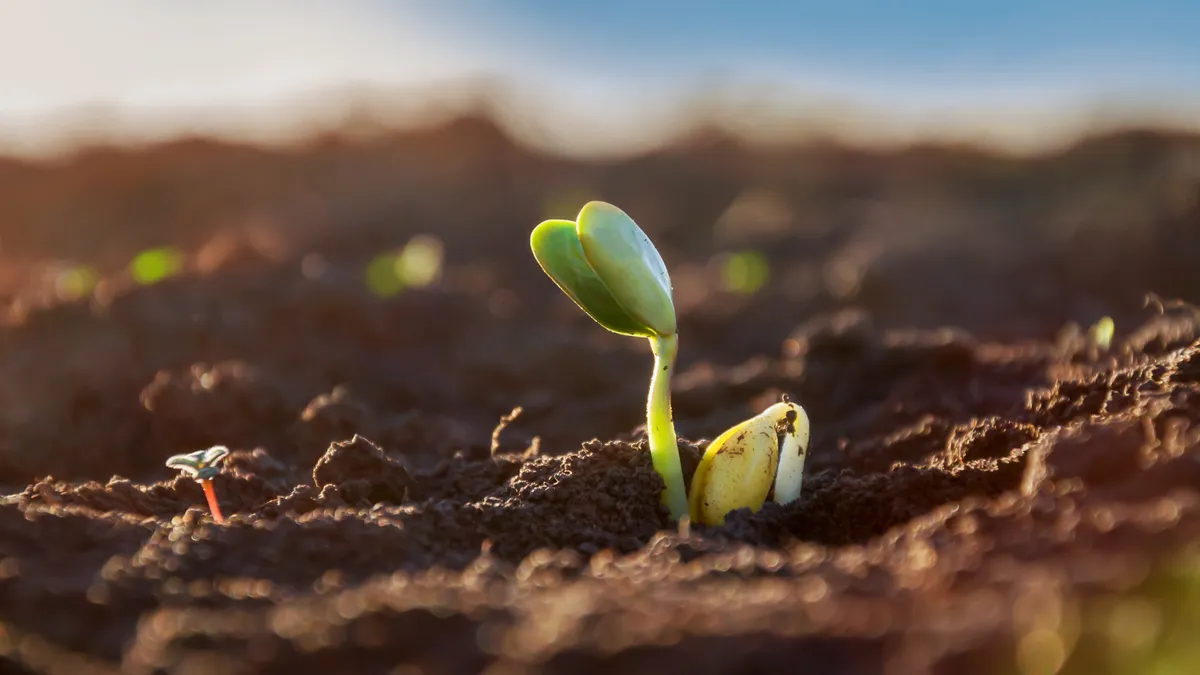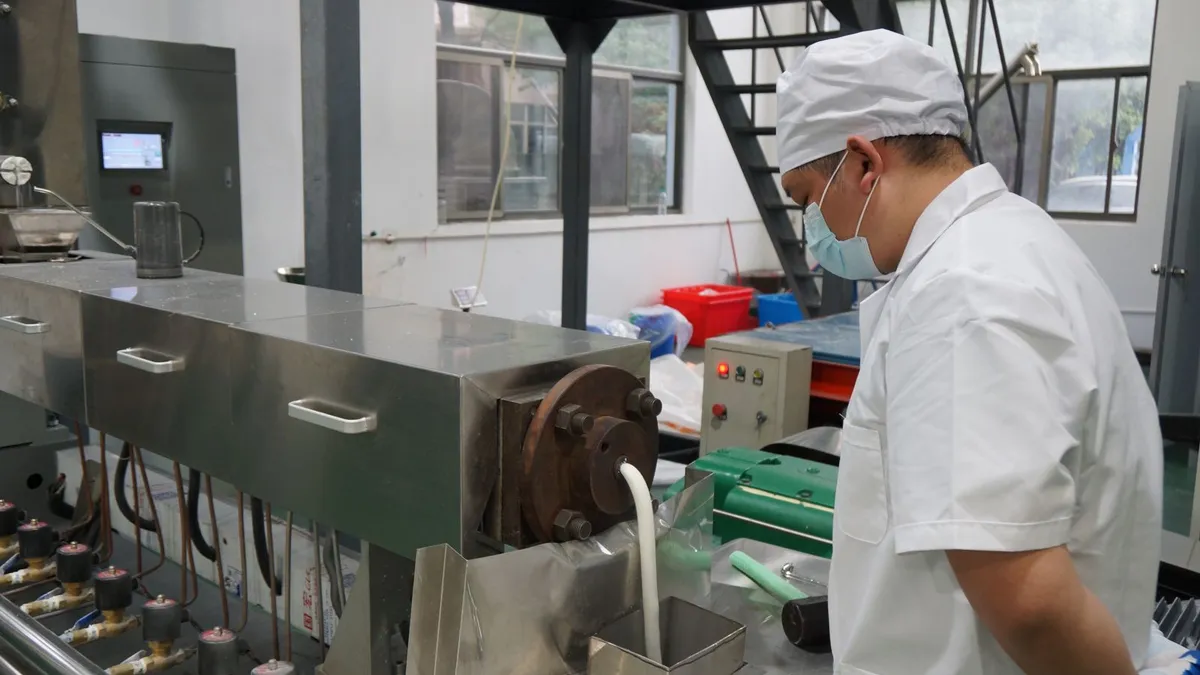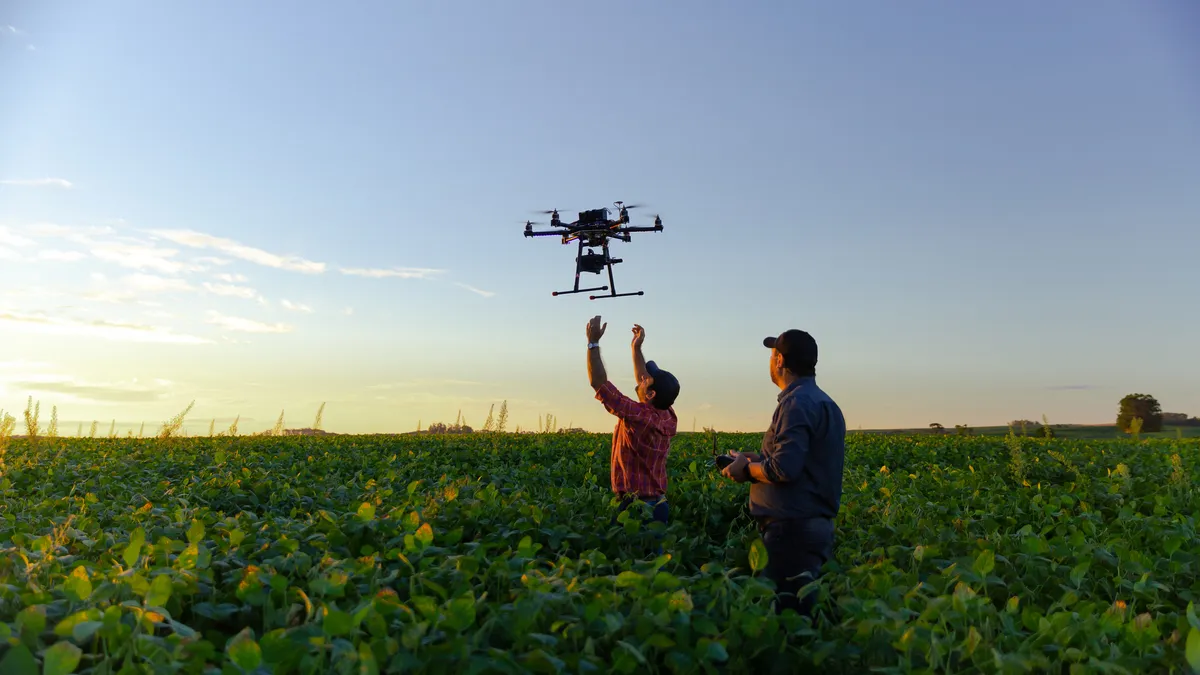Editor’s note: Agtech Seedlings is a weekly roundup of the latest in agriculture technology news, digging into venture funding, product announcements and other innovation milestones. Have news to share? Email us here.
North American farmers lead InnerPlant $30M investment to help crops 'communicate'
InnerPlant, a synthetic biology startup which recodes plant DNA to improve distress signaling, raised $30 million to support its soybean insight platform allowing farmers to track plant signals which communicate whether crops need more water, fertilizer or other interventions.
An alliance of North American growers, helmed by Canadian grain operator and investor Coutts Agro, led the round. Joining them is Systemiq Capital, alongside returning investors Deere & Co., and Bison Ventures. According to Crunchbase, this round brings InnerPlant’s fundraising to $52.3 million since the company’s start in 2018.
“We’ve always considered farmers our ideal investors because they’re the ones who benefit from the success of our technology,” CEO Shely Aronov told AgFunderNews.
InnerPlant’s Living Sensors signal crops’ needs so farmers can take measures to protect the crop, reduce chemical use, and increase yields, according to the company’s website. Approximately 30% of chemicals used in traditional farming are over-applied, while $800 billion — or 20% of annual yields — are lost to pathogens.
“We make crops that can communicate,” said Aronov, telling Synbiobeta. Innerplant’s technology engineers plants to emit fluorescent signals detected by satellites, which transmit back to farming equipment in the field. This equipment can then take action to fight plant disease or infection with minimal human intervention, and can do so before even the most diligent farmer would be able to notice a problem.
Funding will support the rollout of CropVoice, an insight platform combining data from a network of soy plants and giving spray recommendations for fungal infection. The CropVoice platform is set to launch in Illinois and Iowa in 2025 and scale up through 2027.
“The ability of farmers to receive data about stress that’s tied directly to plant physiology fundamentally changes how farmers can manage crops, resulting in more durable profitability,” said Matt Couts, CIO of Coutts Agro.
Technology 'listens' to plants on a Tanzanian espresso farm
Tanzania is the third-largest producer of coffee in Africa, after Ethiopia and Uganda, and one of the top 20 coffee producers in the world. Unfortunately, unpredictable droughts and changing rain seasons have threatened farms known for producing the precious beans, 93% of which are exported to the rest of the world.
To try to help farmers with water management, Cisco partnered with the ConSenso Project, a coalition of Tanzanian espresso farmers and Italian researchers to use technology to “listen to the plants.”
The idea is that, with data from electrodes and humidity sensors, the signals from the plants can tell growers when they need to irrigate, as opposed to indiscriminately using huge amounts of water to account for a lack of rain.
Tunasikia Farm in Utengule, Tanzania was fitted with 65 solar-powered sensors that capture data on soil, sun, climate, insects and plants’ electrical energy fields. After on-site analysis, the data is sent to Florence for further study. Researchers from the Accademia del Caffè Espresso say much of this technology has been in the works for years, and this is one of the first opportunities to try it in the field.
The coalition hopes the technology can eventually become scalable and be implemented by growers across Africa, South and Central America, Southeast Asia and other places.
“The plants have the solution, we just have to listen,” said Massimo Battaglia, coffee research leader at Accademia del Caffè Espresso in Florence.
A new Canada research center showcases the future of insect protein
Swiss technology group Bühler and NRGene Canada, a subsidiary of Israel-based NRGene Technologies Ltd., launched a large insect protein research and demonstration center in Canada. They said the project is a milestone in production and optimization of insect meat in North America.
The NAIC is designed to be a research and demonstration center where customers can evaluate the performance of black soldier fly varieties for their specific products. Black soldier flies and their larvae have many potential uses, given they consume manure, carrion, compost and just about any other organic waste presented to them. They can also be an extremely high-protein food source for chickens and other animals, as well as a fertilizer for crops.
As a result, black soldier fly production has emerged as a promising solution to waste management and protein scarcity with an estimated annual farming of up to 300 billion individual BSFs.
Currently, demand for mass-produced insect protein is approximately 10,000 metric tons but, by 2030, this demand is expected to skyrocket to as high as 500,000 metric tons, posing NAIC in a position at the forefront of a burgeoning industry.
"The development of insect proteins as a sustainable protein source presents significant business opportunities," Johannes Wick, CEO of Bühler's Grains & Food business, said in a statement. "This new facility will open the market up for start-ups and established businesses alike, bringing together the science, tools, technologies, and knowledge needed to further optimize the process to produce protein-rich insect larvae."


















